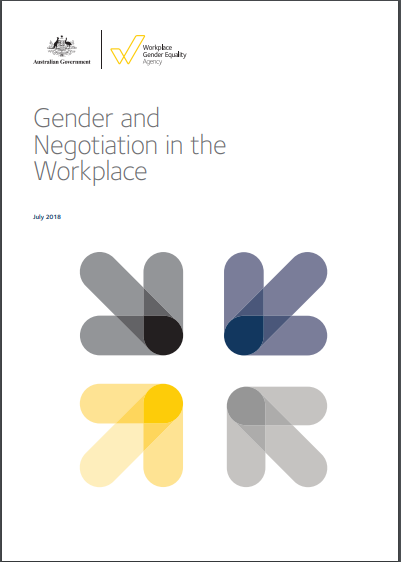Overview
Negotiation is a part of everyday life. Individuals engage in negotiation in the workplace, in the marketplace and in their daily lives.
Engagement in salary negotiation and the ability to navigate these situations skillfully has long-term impacts on salary differentials. Research concludes that gender inequalities during negotiation in the workplace may contribute to the gender pay gap. There is also evidence to suggest that negotiation is a contributing factor towards the lack of women in senior leadership positions and the slower rate of career progression that women experience in comparison to men.
Within the workplace, employees also negotiate their working conditions, on projects and with clients. While there are a number of studies investigating the role of negotiation in setting pay, research also suggests that men may face particular backlash when it comes to negotiating their working conditions, such as flexible working arrangements.
Key findings
- industries that have higher instances of negotiation for wage setting tend to be more highly remunerated in general, however men are benefitting more than women from negotiation
- industries with higher gender pay gaps also tend to have a higher share of employees engaging in negotiation
- negotiation is a tool to secure improved working conditions, including pay and flexible working conditions
- organisations have an important role in facilitating a fair environment for negotiation
- negotiation is a skill that can be practiced and developed.
